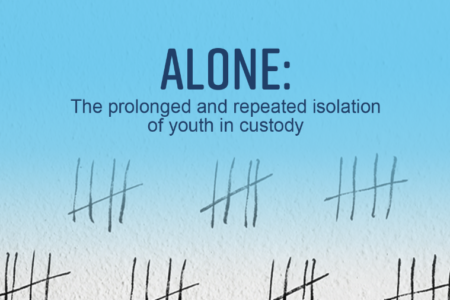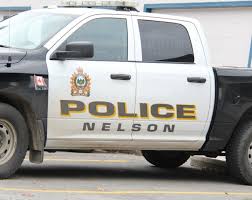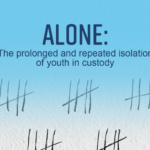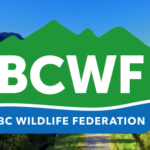OP/ED: Hunters and outfitters share thoughts on wildlife populations
Newsletter December 2015
I am sending you sound bytes from hunters and outfitters that once again remind British Columbians that scientific driven wildlife management in our province has lost virtually every fight to the political game of maximizing hunting opportunity.
To put the stories into scientific wildlife management perspective I have included as I will in the future pertinent facts from the 14 page 1982 paper titled; “Guidelines for Wildlife Policy in Canada”.
“This document provides direction for the development of wildlife policies and programs in the future. It expresses the will of Canadians to manage wildlife for the use and enjoyment of present and succeeding generations”. Page 2
“Two important principles incorporated in the guidelines are related to the use of wildlife. The first is that all Canadians are free to use and enjoy wildlife subject to laws; the second is that maintenance of wildlife populations must take precedence over their use.” Page 5
The legal commitments to native people must be honored while maintaining viable wildlife populations for the benefit of all Canadians.” Page 12
Len Hagel who works at the Grand Forks landfill, used to count 16 mule deer and 20 whitetail on the rocky grassland slope immediately north and adjacent to the land fill. To-day a few whitetail survive because they use the city of Grand Forks as a refuge. Len was the only whitetail hunter in his group to see a whitetail buck which he harvested during their yearly whitetail November hunt.
The Christina Lake area where Len and his friends were hunting, in my time as a guide was an excellent area to hunt the whitetail buck but when political agendas replace responsible wildlife management you get what we got- an area virtually devoid of deer.
I had a conversation in late October with Albin Hochsteiner and Dawson Long; both are ardent hound hunters and former guides. Their combined knowledge of wildlife is a function of 70 plus years hunting South Okanagan and the Boundary. Dawson made the point that with so many wildlife populations in steep decline why would people want to continue to hunt. Albin was blunt with his assessment of the deer population-“How can anyone be so stupid not to know the deer population has collapsed?”
Phillip Dubey, the Grand Forks butcher on Carson Rd. not far from us was butchering 120 deer when he started in 2000 but now is down to approximately 30 deer mostly does and fawns.
Kenny Corf, a butcher from Rock Creek said his business was doing well. On the October Thanksgiving week-end hunters brought 23 deer to his shop- twenty of which were does.
Wally Thomas, a Grand Forks hunter who operates a trap line in the Burrill Creek watershed which is immediately north of the 28 mile bridge over the Granby River reports that the deer harvest by hunters is the poorest he has seen since he purchased his trap line in the mid seventies.
Testimonials from Outfitters and First Nation participants at the November 24th annual meeting of the Wildlife Stewardship Council.
1. Dave Fyfe- Lifelong resident of Vancouver Island. Licensed resident hunter since 1966 and Guide Outfitter since 1992.
When I began hunting in the 1960s, portions of Vancouver Island enjoyed some of the highest concentration of blacktail deer in North America. This abundance of deer allowed for First Nations sustenance hunting, recreational hunting and wildlife viewing opportunities that were enjoyed by thousands of people each year. Those of us who hunted were truly engaged in wildlife management and the deer harvested each year were replaced by a new crop of fawns the following spring. In short, this was a sustainable hunt. What has happened over the past 4 decades has been a collapse of the blacktail deer of epic proportions. In fact, I believe that aside from caribou, there is no other animal on the continent that has failed so miserably as the Vancouver Island deer.
Each year I attend meetings to discuss wildlife management in Region 1 and I often bring up the blight of the deer. I have expressed my concern over predation issues, lack of winter range and the relentless hunting pressure that has denied the deer an opportunity to recover. First Nation’s representatives have been equally vocal about their concerns and have sacrificed many of their harvest opportunities to help in deer recovery. Unfortunately those of us speaking for the deer have experienced little to no support in developing a recovery strategy that puts the plight of the deer ahead of the self-interest of a few who refuse to make the necessary sacrifices to recover the deer populations.
2. Devin Jewell- Outfitter in Harrison Lake area
I live in Region 3-26 Salmon Arm. We had a large winter range above our home out of Styhills area between 2008 and 2015 the winter range went from 150 mule deer to less than 20 from over harvest of mule deer does in that time period wolf numbers were not a concern and cougar numbers were the same as years previous. I believe it was from hunter swarming during November rut and over issuing of antlerless mule deer licenses.
3. Greg and Faye Williams- Golden Bear Outfitting, Charlie Lake BC
I started my guiding career in 1974 in northern BC and have been in the business ever since.
Over the years we have seen the steady decline in the wildlife populations in BC. There is no doubt that the system is broke and unless we change I do not believe there will be a viable outfitting industry for the next generation.
We need to all become the stewards that we are to be. The wildlife is depending on us to get this right. In order to have good conservation we need to have proper stewardship first.
4. Rudy and Linda Day-First Nations- Shesley River Outfitters- Telegraph Creek, BC -Area 6-26
I’ve been in the hunting business for 35 years, started off with my dad, Fletcher Day. I started to run my own business in 1995. We both live in Telegraph Creek, BC. Over the period of time we have seen the animals decline especially the caribou and moose, the main cause that I have witnessed is the wolf and grizzly bear and also we have a lot of resident hunting pressure thru our whole hunting area.
In 2015 we have formed the Taretan Guide Outfitter Association of which I am president; this is my first meeting in Victoria with the Wildlife Stewardship Council. We are very excited to be a member and part of WSC and to put wildlife first so the future generations can also hunt. Thank you
5. John and Kathy Sievers- Outfitters in Lillooet, BC
My name is John Sievers and I’m second generation guide outfitter. Together with my wife, Kathy we’ve been involved in guide outfitting industry for over 30 years. We currently live in Lillooet, BC where we own and operate a sheep, mule deer, moose and predator area. We also own a concession on the west coast of Vancouver Island where we hunt black bear and Roosevelt elk. During my time as a big game guide I’ve watched game populations in all regions of the province get hunted to dangerously low levels. In fact our ability to harvest a bull moose in 3-32 north is basically non-existent when prior to 2007 we maintained a 100% success rate for our clients. Government’s mandate to manage wildlife to the lowest common denominator just isn’t working. If we continue to manage this way I fear there will be nothing left for future generations.
Government’s “Hunter recruitment and retention program” is an oxymoron. You cannot liberalize seasons to recruit new hunters and expect retention when theres nothing left.
The wildlife in B.C. is in dire straights. Its time to stop the nonsense.
6. Raf De Guevara – Westbank First Nations
As the current manager of Rights & Title for Westbank First Nations, feedback from some WFN hunters is still the same message from last year. Deer and moose are much harder to find, because in many cases there just not there. There clearly needs to be changes made to the provincial management and allocation model within the Interior and Okanagan area. Changes need to be made in favor of animal sustainability not the collection of provincial fees.
I had a private moment with Minister Steve Thomson at the annual meeting of the Wildlife Stewardship Council meeting in Victoria November 25 and asked if he would support a meeting of hunters and concerned citizens at Rock Creek and I was mildly surprised that he said yes.
I attend WSC meetings because of First Nations participation and WSC advocacy of a round table of all stakeholders who in my opinion must have the same influence on wildlife management as the hunting opportunity agenda that has resulted in the steep decline of many wildlife populations province wide. The sorry state of habitat and access management is likewise major problems.
It was brought to my attention in early December that Minister Steve Thomson’s Parliamentary Secretary, Mike Morris had drafted a report titled “Getting the Balance Right: Improving Wildlife Habitat Management in British Columbia.”
Mike describes himself as a 32 year RCMP career member who is a conservationist with great respect for our wildlife and its habitat. “I have been a fisherman, hunter and an active trapper for over 40 years.”
If you take the time and read Mike’s report which you can find on the Minister’s webpage it is an easy read. Mike’s comments at the end of his report says it all: “There is an urgency and heightened concern amongst resident hunters, guide outfitters, trappers, the wildlife viewing industry and conservationists that the province is not acting quickly enough to address the decrease in wildlife populations and the degradation of wildlife habitat.”
My son, Bear had a heads up conversation with Mike last August but what does it all mean? Within a week of the release of the report Mike Morris was appointed to the BC Liberal Cabinet as the Solicitor General and subsequently an article appeared in the Vancouver Sun Dec. 21, 2015 titled “BC balks at boosting protection”
The report is a small step forward but to my knowledge there are no meaningful wildlife management hunting regulations proposed notwithstanding wildlife management in BC is a ponzi scheme that has collapsed!
Barry Brandow Sr.























